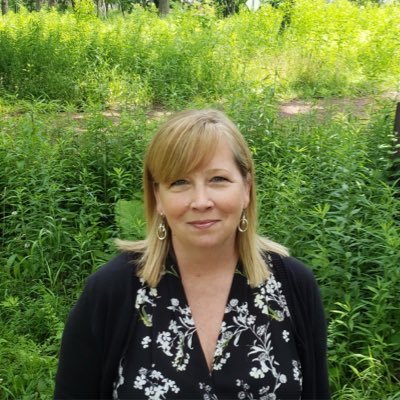Going Green is excited to have Joanne Rodriguez, the founder and CEO of Mycocycle, on an upcoming episode, to discuss Mycology Technology. Mycocycle, Inc is a waste-to-resource process that uses mycoremediation to remove harmful toxins out of trash.
Getting to Know Joanne:
Joanne Rodriguez has over 30 years of experience in construction products and materials. Her expertise in developing programs for business development, as well as leading in the sustainability space, makes her well poised to discuss the pressing need to develop a solution set around these material waste streams, as well as to equate the positive environmental benefits to ROI.
Joanne is a LEED Accredited Professional through the USGBC, a Certified Permaculture Designer, a Construction Document Specialist, a Climate Reality Leader as well as a frequent speaker and educator on issues around sustainability and the built environment, climate change advocacy, and policy influence.
Now, Joanne applies her experience working with Mycology Technology.
Joanne, thanks for being here. Tell us a little bit more about your background:
I’ve got 30 years of leadership experience in construction products manufacturing. As a subject matter expert on the environment, I’ve talked nationally about the impact that buildings have on carbon emissions as well as participated in high level convenings addressing issues of city resiliency, green buildings, climate justice and circularity.

What caused you to get into your industry?
The built environment is an important space and should be central to every conversation related to carbon mitigation and green impact solutions. Having witnessed issues with the manufacturing sectors I worked in, like disposing of waste streams at both ends of the use spectrum, I decided it was time to try to resolve the issue outside of corporate America.
I researched and collaborated with mycologist, Peter McCoy, to develop a solution to roofing waste using mycoremediation: mushrooms. I knew we could tackle this growing issue and take the technology developed through mycology and start to apply it to other pressing waste and environmental problems to not only mitigate the environmental concerns around toxins, but also create a potential biobased supply source of new materials. Using our waste and converting it to a resource.
What trends are you seeing in your industry?
There is a lot of discussion around circularity. Circularity is an economic system aimed at eliminating waste and the continual use of resources. The output of one process can become the input of another.
But we are really seeing the advancement of the regenerative economy as a more pressing solution for today’s environmental dilemmas. Regenerative economics is an economic system that works to regenerate capital assets. A capital asset is an asset that provides goods and/or services that are required for, or contribute to, our well being.
Similarly based in indigenous cultures, regeneration is based on ecological restoration, community protection, equitable partnerships, justice, and full and fair participatory processes. It is a holistic approach that runs across all segments of life and nature.
Seems super tree-huggy, but the “People, Planet, Prosperity” (triple bottomline) mantra of the last 10-15 years is the exact same thing. We need to do better across the board with the resources we are afforded and that is what the industry is examining worldwide.
What is one Action Item for our listeners and viewers to take away from this conversation?
I hope they will look around in nature and see what is working. Nature always shows us the way: to heal, to prosper, to communicate. We can draw solutions from nature, and start to really capitalize and innovate similar solutions. Why rebuild the wheel?
What is a fun fact about you?
I am an avid concert and music festival goer (rock, punk, alt)
Where do you see your industry ten years from now?
I have a hard time fitting in one industry, so my responses are a bit all over the place. The waste management industry–it will be cleaner and emit less harmful toxins because of processes like mine and a multitude of others focused on more sustainable waste management innovations. For the building materials industry–it will be more outwardly focused on green chemistry and promoting the greater use of biobased/plant based materials in the future. The built environment space can do better to support and drive innovation, and I think they will be forced to do so as more opportunities present themselves.
Going Green wants to thank Joanne for taking the time to share her experience working with Mycology Technology.
Our goal on Going Green is to bring you the latest in green technology advancements, while also giving you action items to takeaway and apply to your life. We focus a lot on energy, transportation, finance, A.I. Technology, and media.
Going Green interviews leading experts in cleantech, sustainability, media, finance, and real estate on the Going Green podcast. Tune in and subscribe to the podcast on Apple or Spotify to listen to interviews with leading cleantech and sustainable experts.